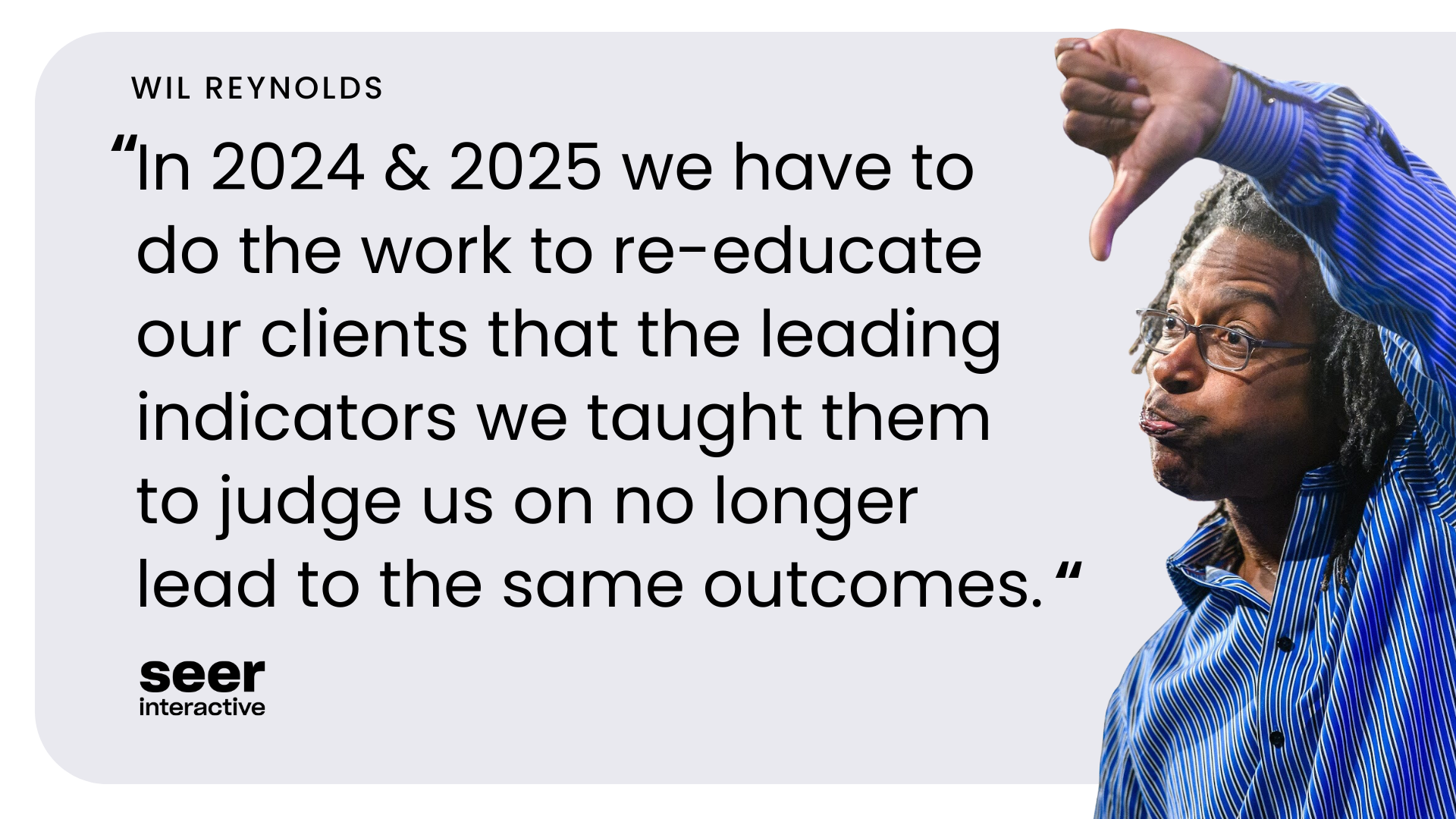Impressions, Clicks, Cost Per Click, Average Position. These are just some of the 14 or so metrics we report on to our clients on a weekly basis. With so many different things to look at, it’s hard to grasp what is affecting your campaign’s performance short term and long term. Instead of looking at all 14 of these metrics, trying to calculate them into your daily KPI check and being sad....
Focus on something that really matters – like Conversion Rate – and start feeling awesome instead!
Improving Conversion Rate can be a process, but it’s certainly an important one. The first step in this process is really understanding what your conversion rate means. Conversion rate is the calculation of total conversions divided by the number of clicks to your ad. So breaking it down in simplest form: something about your ad appealed to a person and they clicked onto your landing page. Out of those people, how many completed the intended goal?
The second step in this process is defining your goal. Do you want the customer to download a whitepaper? Fill out a form? Buy your product or service? Whatever the goal may be, it results either directly or indirectly in a return on investment for your business.
The third step in this process is aligning your ad copy and landing pages with these goals. From an ad copy standpoint, you want to grab the user’s attention, spark their interest, and end with a solid direction for next steps (call to action). Here’s where that goal comes in handy. If it’s a form, “Sign up now!” would be a good call to action. If you’re trying to sell them a service or product, include a promotion that may further interest them. Best practices in terms of ad copy usually include your call to action being the last piece of your 70-character sales pitch.
From a landing page standpoint, please reference the well-known acronym you learned in middle school: KISS (Keep It Simple, Stupid!). Ok, so the stupid part is unnecessary, but the first part is key. Once your user gets your landing page, make it as simple as possible for them to perform whatever task equates to a conversion. Best practices in terms of landing pages include large clickable action items, with enough content to inform but not overwhelm above the fold.
The fourth step and probably the most relevant to conversion rate best practice is testing among these two items. For example, alternate between different wordings of your call to action and the placement of your conversion goal on the landing page. Make “Sign Up Now” blue instead of grey. Although seemingly insignificant, any of these tests could improve or hinder your conversion rate. Once you’ve performed an analysis and determined which test of the two resulted in higher conversion rate, keep that one, and create another test to compare against. You should never stop trying to improve your ads or landing pages.


